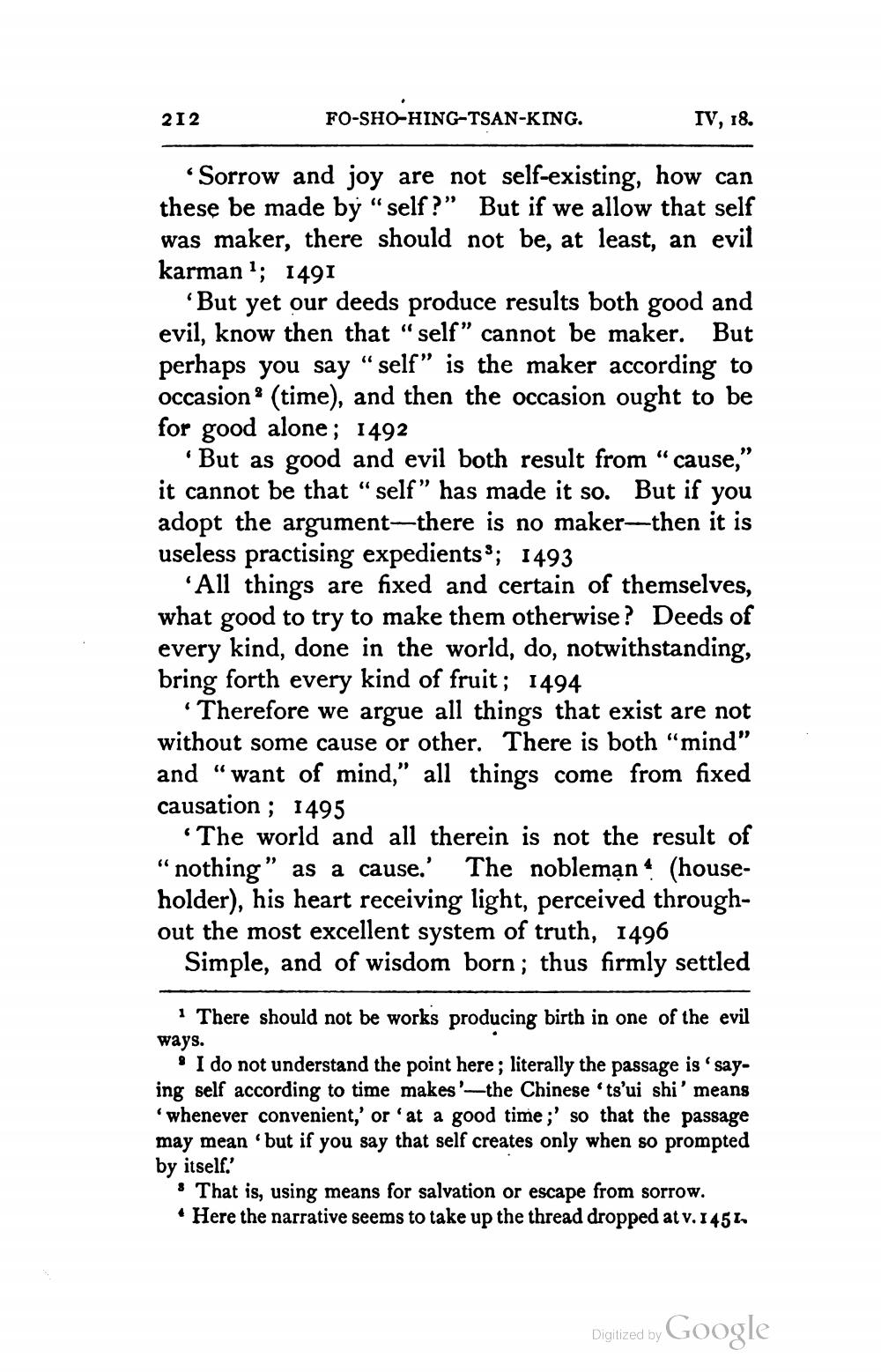________________
212
FO-SHO-HING-TSAN-KING.
IV, 18.
“Sorrow and joy are not self-existing, how can these be made by "self?” But if we allow that self was maker, there should not be, at least, an evil karman 1; 1491
But yet our deeds produce results both good and evil, know then that "self" cannot be maker. But perhaps you say “self” is the maker according to occasion? (time), and then the occasion ought to be for good alone; 1492
'But as good and evil both result from “cause," it cannot be that “self” has made it so. But if you adopt the argument—there is no maker-then it is useless practising expedients $; 1493
'All things are fixed and certain of themselves, what good to try to make them otherwise ? Deeds of every kind, done in the world, do, notwithstanding, bring forth every kind of fruit; 1494
*Therefore we argue all things that exist are not without some cause or other. There is both “mind" and “want of mind,” all things come from fixed causation ; 1495
The world and all therein is not the result of “nothing” as a cause.' The noblemạn: (householder), his heart receiving light, perceived throughout the most excellent system of truth, 1496
Simple, and of wisdom born; thus firmly settled
1 There should not be works producing birth in one of the evil ways.
' I do not understand the point here; literally the passage is 'saying self according to time makes'--the Chinese 'ts'ui shi' means 'whenever convenient,' or 'at a good time;' so that the passage may mean 'but if you say that self creates only when so prompted by itself.'
& That is, using means for salvation or escape from sorrow. • Here the narrative seems to take up the thread dropped at v. 1451.
Digitized by Google




